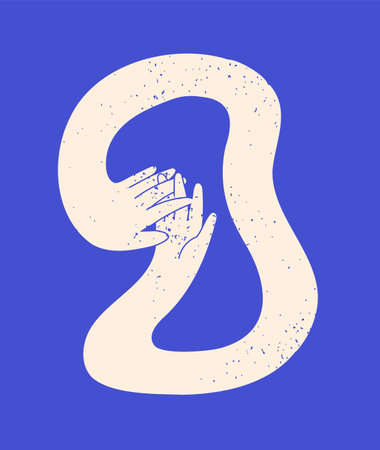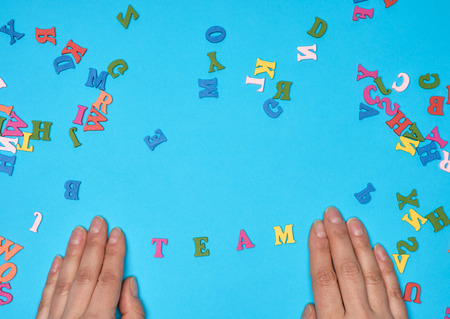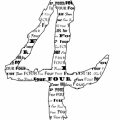Introduction to Numerology in the United Kingdom
In the tapestry of British life, numerology has woven a subtle yet enduring thread, quietly influencing beliefs and practices from ancient times to the present day. While rooted in mystical traditions stretching back to Pythagoras and even earlier civilisations, the study of numbers and their hidden meanings has found a particular resonance within the United Kingdom’s cultural landscape. Historically, British society has long valued symbolism and ritual—qualities that align naturally with numerological thought. From the folklore of lucky numbers to the careful selection of dates for significant events, Britons have often looked to numbers for guidance and reassurance. In recent decades, there has been a gentle resurgence of curiosity about numerology, blending traditional wisdom with a modern appetite for personal insight. Today, both the Chaldean and Pythagorean systems are explored by those seeking greater self-understanding or hoping to harmonise their lives with the rhythms of fate. This renewed interest reflects a broader trend: an embrace of holistic approaches that honour both reason and intuition. Thus, numerology continues to offer a unique lens through which individuals across Britain interpret their experiences and make sense of life’s mysteries.
2. Understanding the Chaldean and Pythagorean Numerology Systems
Numerology, though rooted in ancient wisdom, continues to capture British imagination with its promise of insight and self-understanding. At the heart of this tradition are two prominent systems: the Chaldean and Pythagorean numerology methods. Both offer unique approaches, yet each finds practical resonance within the fabric of British life.
Key Principles of Each System
| System | Origin | Main Focus | Core Method |
|---|---|---|---|
| Chaldean | Ancient Babylon (Chaldea) | Name vibrations | Assigns numbers 1-8 to letters; no use of number 9 except for special cases |
| Pythagorean | Ancient Greece | Name and birth date analysis | Assigns numbers 1-9 to letters in sequence; includes master numbers 11 and 22 |
Interpretation and Practical Application in the UK
The Chaldean system is often appreciated in Britain for its emphasis on hidden influences and spiritual undertones, making it a favourite among those seeking depth in personal readings. Its more nuanced letter-to-number assignments are seen as particularly adept at uncovering subtle energies that resonate with traditional British values of discretion and modesty.
Pythagorean numerology, on the other hand, is widely embraced for its simplicity and structured approach, aligning well with the British preference for clarity and order. It is commonly used to analyse names, birth dates, and even business ventures—offering guidance on everything from choosing auspicious wedding dates to evaluating property numbers.
Practical Examples in British Context
- Parents may consult numerologists when naming their children, considering both systems to ensure harmony and success.
- Entrepreneurs might analyse business names using Pythagorean calculations before registering companies with Companies House.
- Homebuyers often reference Chaldean insights when selecting house numbers, believing certain vibrations bring prosperity or peace.
Cultural Integration
The continued appeal of both systems lies in their adaptability—whether woven into daily decisions or reserved for significant milestones, numerology offers Britons a bridge between ancient wisdom and modern practicality. By understanding these methods, individuals can tailor choices that honour tradition while navigating contemporary life with confidence.

3. Everyday Life: Numerology and British Names
In the tapestry of British society, names are more than mere labels—they carry echoes of ancestry, character, and destiny. Numerology, particularly through the Chaldean and Pythagorean systems, offers a distinctive lens for Britons to explore the deeper resonance of their names and surnames. Each letter is assigned a numerical value, and through careful calculation, these numbers reveal vibrations believed to shape ones identity and personal journey.
For many in the UK, the analysis begins with their given name and family surname. These are not only markers of heritage—think of the enduring legacy in names like “Smith” or “Windsor”—but also keys to unlocking hidden potentials and challenges. The Pythagorean system, with its straightforward assignment from 1 to 9, has gained popularity among those seeking clarity about their strengths or life purpose. In contrast, the Chaldean approach is often favoured by those who appreciate tradition and subtlety, valuing its nuanced interpretation of name vibrations.
The influence of numerology can be seen at pivotal moments: parents consulting number charts when naming a child, couples considering compatibility before marriage, or individuals contemplating a career change. It is not uncommon for Britons to quietly reflect on whether their names align with aspirations—should an extra ‘e’ be added to achieve a luckier sum? Such decisions may seem whimsical to some, yet they highlight an enduring curiosity about how ancient wisdom might gently steer modern lives.
Whether whispered over tea in a London parlour or discussed at a family gathering in Yorkshire, numerological insights into names are woven into conversations about self-discovery and growth. Many believe that understanding the numeric essence of one’s name can foster greater self-awareness, confidence, and resilience—a uniquely British blend of pragmatism and open-minded inquiry.
4. Numerology in British Homes and Addresses
Across the United Kingdom, the subtle influence of numerology extends into the realm of domestic life, especially in the selection of house numbers and addresses. While the British are known for their pragmatic approach to property, there is a long-standing tradition—rooted in both Chaldean and Pythagorean systems—of considering numerological meanings when choosing or evaluating a home address. For many, this practice is woven quietly into the fabric of everyday decision-making, reflecting a desire for good fortune, harmony, and prosperity within one’s household.
The Tradition of Lucky House Numbers
In Britain, certain numbers are widely regarded as auspicious or unlucky. The number 7, for example, carries connotations of luck and spiritual insight in both numerology and broader British folklore. Conversely, some avoid houses numbered 13 due to its association with misfortune—a sentiment echoed in property values and buyer preferences. It is not uncommon for new homeowners to consult a numerologist to assess whether an address holds positive vibrations according to either the Chaldean or Pythagorean systems.
Numerological Impact on Property Value
Estate agents across England, Scotland, and Wales occasionally encounter buyers who inquire about the numerological implications of a property. This can subtly influence market demand and even pricing. Some property developers have been known to skip number 13 altogether or offer properties with “lucky” numbers at a premium.
Comparison Table: Numerology Systems Applied to UK House Numbers
| House Number | Pythagorean Meaning | Chaldean Meaning | Common British Interpretation |
|---|---|---|---|
| 1 | Leadership, New Beginnings | Individuality, Progress | Favoured for independence and success |
| 7 | Spirituality, Wisdom | Mysticism, Introspection | Highly sought after for luck and insight |
| 8 | Material Success, Power | Karma, Balance | Desirable for business-minded homeowners |
| 13 | Transformation (often seen as challenging) | Caution, Upheaval | Avoided by many due to superstition |
| 22 | Master Builder, Achievement | Aspiration, Potential Realised | Treasured as a “master” number offering great promise |
Cultural Practices Around Address Alteration
It is not unheard of for British homeowners to apply to local councils for minor address adjustments—such as changing “Flat 13” to “Flat 12A”—to sidestep perceived numerical misfortune. Similarly, some might select homes whose addresses reduce to lucky single digits after applying numerological calculations.
The Quiet Influence of Numerology at Home
While seldom spoken of overtly in daily conversation, the influence of numerology remains quietly persistent in British society. From the Scottish Highlands to suburban London streets, the belief that certain numbers attract health, happiness, and wealth continues to shape how Britons relate to their homes—blending traditional wisdom with contemporary life in a manner both understated and enduring.
5. Work, Finances, and Personal Success
In the United Kingdom, where tradition often meets modern ambition, numerology has found its place in shaping career decisions, business branding, and financial planning. The Chaldean and Pythagorean systems are increasingly consulted by those seeking a competitive edge in British professional life. The notion that one’s name or date of birth can influence vocational aptitude is not new; however, it has gained renewed interest among both entrepreneurs and employees striving for success in a dynamic economy.
Numerology in Career Choices
Many Britons are turning to numerological analyses when contemplating career paths or making pivotal job changes. By evaluating the numerical values associated with their names or birthdates, individuals hope to uncover strengths and latent talents that may guide them toward professions aligned with their inherent abilities. For instance, a person whose numbers suggest leadership qualities may feel encouraged to pursue roles in management or public service—a sector so integral to British society.
Business Branding with Numerological Insight
Across Britain’s high streets and start-up scenes alike, business owners are applying numerological principles to brand naming and company identity. It is not uncommon for entrepreneurs to consult with numerologists before registering a business name or launching a new product. The aim is to select names that vibrate positively according to Chaldean or Pythagorean calculations, thereby fostering good fortune and consumer trust—a practice subtly woven into the fabric of British enterprise culture.
Financial Decisions Guided by Numbers
Financial planning is another realm where numerology has practical application. Whether investing in property in London or managing personal savings in rural Wales, some Britons seek auspicious dates for signing contracts or making major purchases based on personal numbers. While such practices may blend tradition with superstition, they reflect a distinctly British approach: pragmatic yet open to subtle influences that might tip the scales towards prosperity.
In sum, numerology serves as both a reflective tool and a decision-making aid within the British context. From career choices to financial ventures, the thoughtful application of Chaldean and Pythagorean systems highlights an enduring belief that numbers—much like heritage—can quietly shape one’s path to personal success.
6. Cultural Attitudes: Scepticism and Acceptance
British society has long been renowned for its pragmatic outlook, where tradition often walks hand in hand with a certain brand of healthy scepticism. This cultural inclination shapes the way numerology—whether Chaldean or Pythagorean—is received across the United Kingdom.
The British Tradition of Rational Inquiry
Rooted in centuries of scientific advancement and philosophical debate, Britons are often encouraged to question claims that fall outside the bounds of empirical evidence. Numerology, with its mystical origins and association with the occult, is no exception. Many view it through a critical lens, wary of unfounded promises and grandiose predictions. Public discourse tends to emphasise personal responsibility over fate dictated by numbers, echoing the nation’s preference for reasoned analysis over superstition.
Open-Minded Exploration Amidst Doubt
Yet, alongside this scepticism lies an undeniable curiosity. The British are known for their openness to new experiences, provided such explorations are approached sensibly. Increasingly, individuals may consult numerological readings not as gospel but as one perspective among many—a tool for self-reflection rather than prophecy. This balanced attitude allows space for experimentation while maintaining grounded expectations.
The Occult in Contemporary British Life
Interest in the occult has waxed and waned throughout Britain’s history, from Victorian fascination with spiritualism to the modern resurgence of alternative spirituality. In recent years, numerology has found a modest place within this tapestry. While mainstream acceptance remains limited, niche communities—both online and offline—enthusiastically explore numerical symbolism and its potential influence on daily life.
Ultimately, the interplay between scepticism and acceptance reflects broader British values: respect for tradition coupled with a willingness to consider new ideas. Numerology’s practical applications may never become universally embraced, but within these islands, there will always be those who look to numbers for insight—provided they can do so with both curiosity and caution in equal measure.
7. Practical Tips: Integrating Numerology into Modern British Life
While numerology may seem esoteric at first glance, it can be woven gently into the fabric of contemporary British life with thoughtful intention and a touch of curiosity. Here are some practical ways to experiment with both the Chaldean and Pythagorean systems in everyday routines and special occasions, all while keeping cultural sensibilities at heart.
Choosing Auspicious Dates for Life Events
From weddings to housewarmings, Britons value tradition and good fortune. Use numerology to select dates whose vibrations align with harmony and prosperity. For example, calculate the life path numbers of partners getting married and seek days where the sum of the date complements their energies. This subtle nod to numerological wisdom can add a meaningful layer to cherished milestones.
Personalising Everyday Decisions
The British penchant for personalization extends naturally to daily choices. When considering a new mobile number, car registration, or even an email address, use the Chaldean system to assess if the numerical pattern resonates positively with your birth date or name number. Such details, though small, can provide reassurance or simply add a sense of personal ritual to modern life.
Naming New Ventures
Whether launching a start-up in Brighton or opening a café in York, the naming process is pivotal. Apply the Pythagorean system to evaluate potential business names, ensuring that their numerical value reflects growth, creativity, or stability—qualities cherished in British enterprise. This practice can foster confidence as you embark on new professional journeys.
Celebrating with Numerological Touches
Birthdays and anniversaries are celebrated widely across Britain. Infuse these occasions with numerological meaning by selecting gifts or themes that correspond with the recipient’s personal numbers. For instance, present bouquets with flowers in numbers matching their life path, or arrange seating charts that subtly harmonise group energies at gatherings.
Embracing Reflection and Conversation
Naturally inclined towards introspection and meaningful conversation, many Britons might find value in discussing numerology over a pot of tea or during a countryside walk. Exploring how certain numbers have appeared at key moments can spark thoughtful reflection and connect generations through shared stories.
A Balanced Approach
Above all, integrating numerology into daily British living is best approached with warmth and balance—honouring tradition while remaining grounded in practicality. Whether you view it as a charming custom or a tool for deeper insight, experimenting with numerology offers an accessible way to enrich everyday experiences and celebrate the subtle magic within ordinary moments.

